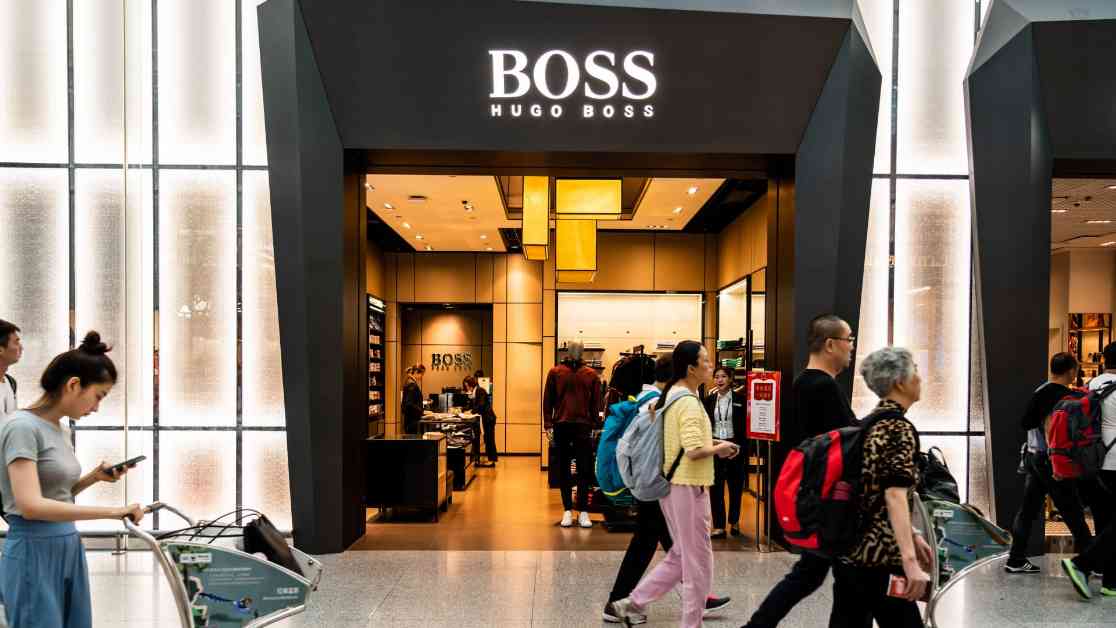Hugo Boss, the German luxury fashion house, saw its stock drop by 9% after revising its sales guidance for 2024 due to a decline in demand from China. The company now expects full-year sales to reach up to 4.35 billion euros, down from the previous forecast of 4.45 billion euros. This revision was attributed to ongoing macroeconomic and geopolitical challenges, with China and the U.K. being highlighted as particularly difficult markets.
CEO Daniel Grieder expressed the impact of global uncertainties on the company’s performance in the second quarter. Despite the challenges, Grieder remains confident in the company’s ability to drive growth and capture market share through strategic investments in its brands, BOSS and HUGO.
This is the second guidance cut by Hugo Boss this year, with the previous forecast indicating slower sales growth of 3% to 6% in 2024. The recent revision now moderates the growth target to 1% to 4% in group currency. The company reported a 1% decline in group sales in the second quarter, primarily due to decreases in Asia and Europe.
Although second-quarter operating profit fell by 42% year-on-year, Grieder anticipates a return to profitable growth in the latter half of the year. The luxury sector has been impacted by macroeconomic and geopolitical concerns, with other high-end brands like Burberry and LVMH also experiencing a slowdown in sales.
Burberry shares plummeted by 16% following a disappointing fiscal first-quarter performance, resulting in a profit warning and changes in leadership. Richemont, a Swiss luxury group, reported minimal sales growth in the first quarter due to a decline in Chinese sales. The luxury sector has been grappling with weaker demand from the Chinese market, which has been slow to recover from the pandemic.
While Chinese consumer spending has decreased, there has been a shift towards overseas purchases by Chinese shoppers as travel restrictions ease. Before the pandemic, a significant portion of luxury demand from Chinese consumers occurred outside of mainland China. With travel restrictions in place, this demand shifted back to mainland China. However, as travel resumes, Chinese shoppers are once again making luxury purchases overseas.
This trend has led to an increase in luxury spending in Asian destinations, particularly in Japan due to the weak yen. The luxury sector continues to adapt to changing consumer behaviors and global uncertainties, with companies like Hugo Boss focusing on strategic investments to drive growth and navigate challenges in the market.
















